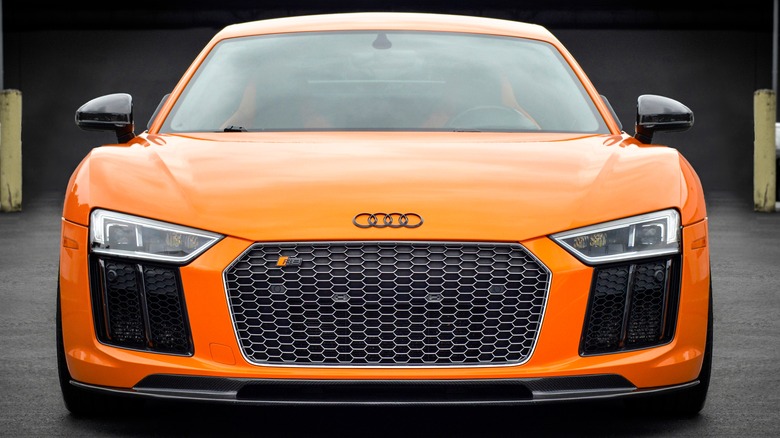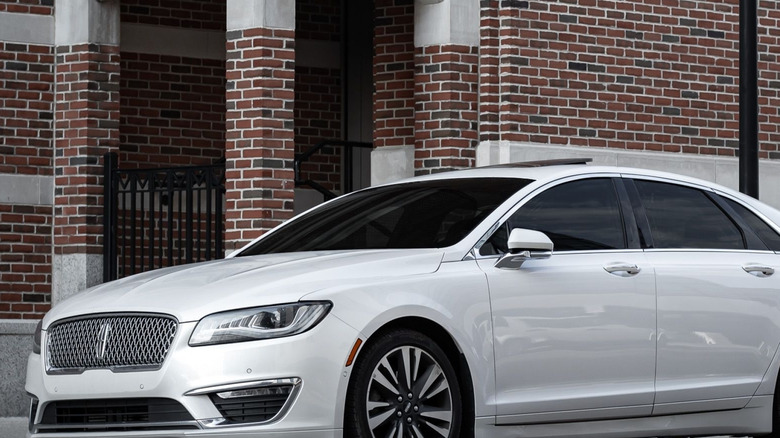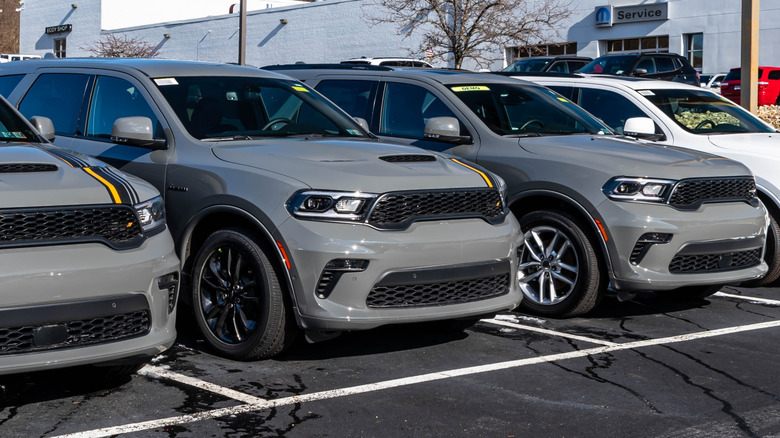Should You Still Buy A Car That's Being Discontinued? Pros & Cons, Explained
For a lot of folks, buying a car is stressful and challenging time. Everyone has horror stories about particular brands, dealerships, models, and even specific model years — and there's so much conflicting advice out there, it's tough to even figure out where to start. One topic that often leads to conflicting advice is whether you should buy a discontinued — or soon-to-be discontinued — model.
What does that mean? When an automaker discontinues a car, it means the particular model is being phased out of production. To clarify, it's not when the manufacturer disappears. For example, in 2024 Audi discontinued the R8 and Nissan discontinued the Titan pickup truck, but both brands continue to produce other models. Pontiac, on the other hand, became defunct in 2010, meaning the brand as a whole disappeared, rather than just one model. With that cleared up, let's look at whether you should consider a car that's being discontinued as your next purchase.
The pros of buying a car that's being discontinued
There are some benefits of purchasing a car that's being discontinued. Perhaps the most appealing is that cars at the end of their production life tend to be more reliable. This is because as a model goes through production, consumers pick up on issues and report them to manufacturers. As a general rule, manufacturers correct these issues as production continues, leading to any generation's final model years being more reliable than earlier examples.
For example, Lincoln launched its facelift MKZ sedan as a 2017 model year, and it ran until 2020, when the model was discontinued. The National Highway Traffic Administration shows that the 2017 MKZ has been the subject of four recalls, and customers have made 92 complaints. By way of comparison, both the 2019 and 2020 model years have had no recalls, and between them, only 10 complaints: nine against the 2019 MKZ, and just one against the 2020 MKZ. This demonstrates the improvements later model years tend to benefit from, meaning a model about to be discontinued is likely to offer a sweeter ownership experience.
Furthermore, when a model is being discontinued, the chances are it could be a bit out of date, and therefore a harder sell for the automaker. If you're happy overlooking a little dated styling and tech, the dealership might be willing to offer attractive discounts in order to move the soon-to-disappear models.
Drawbacks of buying a car that's exiting production
It's not all roses and sunshine, though, as there are also some drawbacks to consider. While people are often glad to get one of the cheapest new cars, many would hate to feel their new purchase is out of date straight from the dealership. While it's not a hard-and-fast rule, anything that's about to be discontinued is unlikely to have had the same investment from the automaker in recent years as continuing models, so the tech, style, and creature comforts may appear dated, and your new car might not feel as new as it could.
Prospective buyers might also be concerned that parts availability could be tricky for discontinued cars. This isn't warranted, as manufacturers continue producing parts for years after a car leaves production. However, the perceived threat of low parts availability could affect a car's resale price, making it hard for owners of discontinued cars to get a good price when they go to sell it later.
This isn't always the way, though, particularly for rare performance cars that get discontinued. The fact no more can be made makes them seem exclusive, and therefore desirable, meaning the second-hand price could increase. This is the exception, though, rather than the rule.


